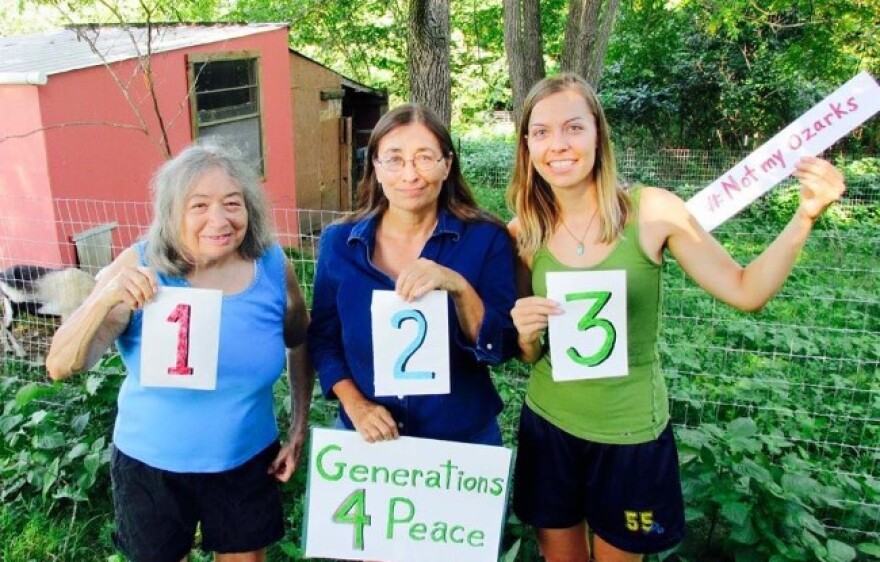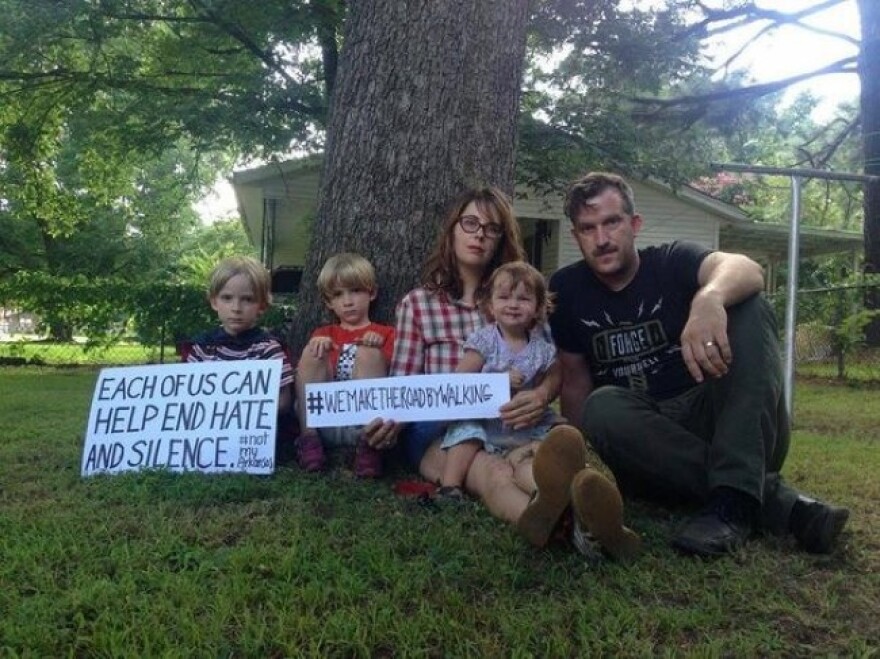Rachel Luster wasn’t happy when news started showing up in her social media feeds that the Ku Klux Klan wanted to train “the first recruits… in a mighty army” in her part of the Ozarks.
The Klan had reportedly scheduled a five-day training camp for late July near Harrison, Arkansas. Even though that’s a couple of hours south of where Luster runs the Oregon County Food Producers and Artisans Co-Op in Alton, Missouri, it was still too close to home.
“Our region gets pigeonholed as being stupid, backward, anything that goes along stereotypically with being hillbilly,” says Luster. It had only been a few months since the KKK had embarrassed the Ozarks with its “It’s not racist to love your people” billboards, which earned national attention on CNN.

“Their message is they’re protecting the sanctity of white Christian families, which really bothered me because I have a white Christian family. It’s so antithetical to my understanding of what our religion’s supposed to be about,” Luster says. “It just really upset me. It really hit me in every soft spot for my place.”
Luster is a fiddle player and a folklorist by training, with deep roots in the area. The Oregon County Food and Artisans Co-Op she runs is a multi-purpose operation where local growers sell their food, entrepreneurs incubate their businesses, artists show their work, members take workshops to learn various skills, and people can check out books from the one-room library, take yoga classes and play music. In a town of 800 people, 124 of them are co-op members.
Luster doesn’t consider herself an activist, but she knew something had to be done. So she started with the easiest possible thing, which was a social media campaign.
Luster started a #Not My Ozarks Facebook page and encouraged people to send in photographs of Ozark residents holding signs rejecting the stereotype and promoting racial tolerance. People have been sending in pictures, and more than 5,000 people have liked the page in the month it’s been up. Several hundred people are also following Twitter and Instagram feeds of the same name.

“I live in a community that’s 90-something percent white, but I don’t feel any sort of overt racism here,” Luster says. “But I also feel like people don’t talk about these issues because it’s super easy to say, 'We don’t have that problem here because we’re all white.'”
But during a time of national protests, Luster says, it’s time for people of all colors to talk about the issues.
“Just because we’re all white doesn’t mean it’s not our problem,” she says.
Conversations about white privilege are especially complicated in a place like the Ozarks, she notes.
“In my county, 52 percent of the people are on government assistance, and 30 percent are below the poverty line,” Luster says.
It’s easier to have those conversations online, partly because it’s convenient to link to educational resources, Luster says. More important than stacking up easy likes, however, have been the in-person conversations Luster’s now hearing.

“People know me and know that I started that page, so really interesting things have happened,” Luster says.
One day at the co-op, she says, “four women were sitting in here eating lunch, and they broke into a conversation about race, racism and sexism. They didn’t know each other, but they were talking it out. I went to Walmart one day, and a couple stopped me and wanted to talk about structural racism. It’s really cool. It’s working.”
She’s also been talking with members of other organizations throughout the Ozarks.

“There’s a clutch of pages now besides Not My Ozarks,” she notes. There’s The Other Arkansas, The Other Mississippi, The Other Tennessee. “We’re thinking about how we could come together as rural people or Southern people on a national level and eventually work it toward having policy conversations,” she says.
First, though, she’s planning to start a social justice Bible study group. “We crowd-funded that," she says, "and in about three days we raised the money from local folks to purchase all the books.”



